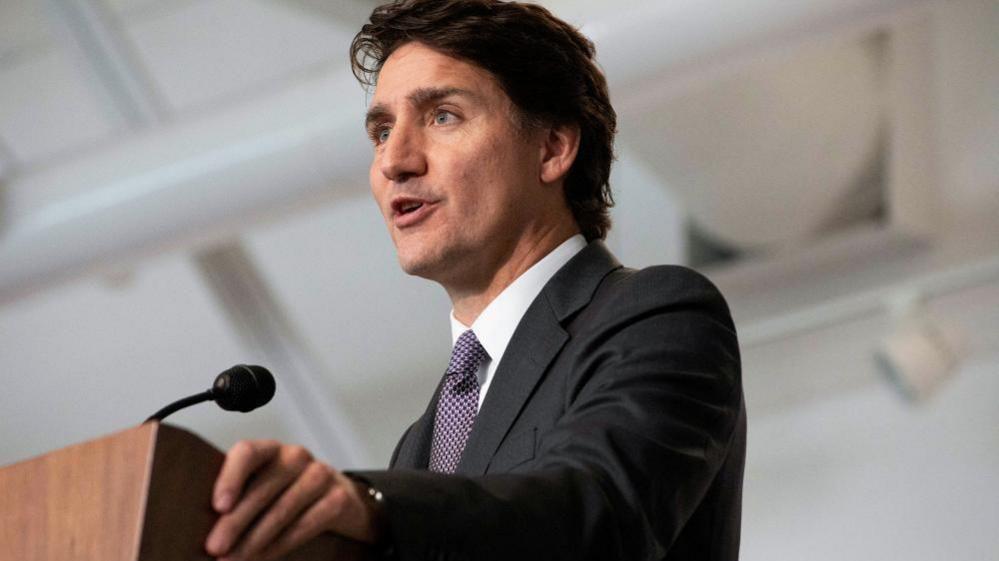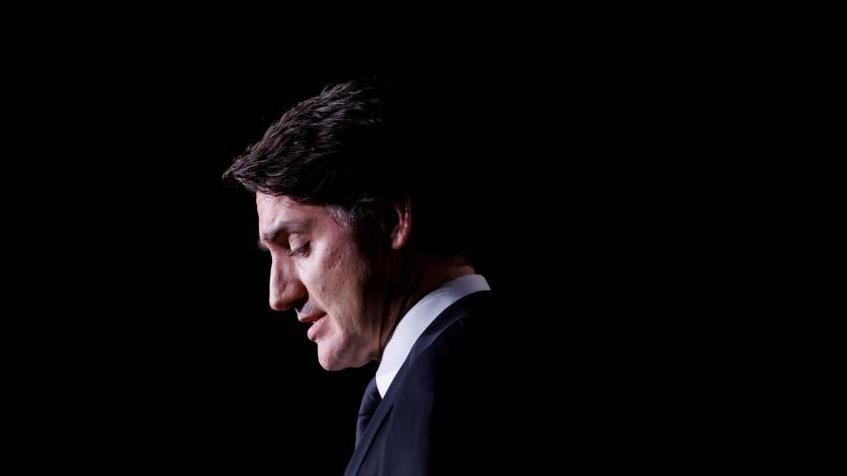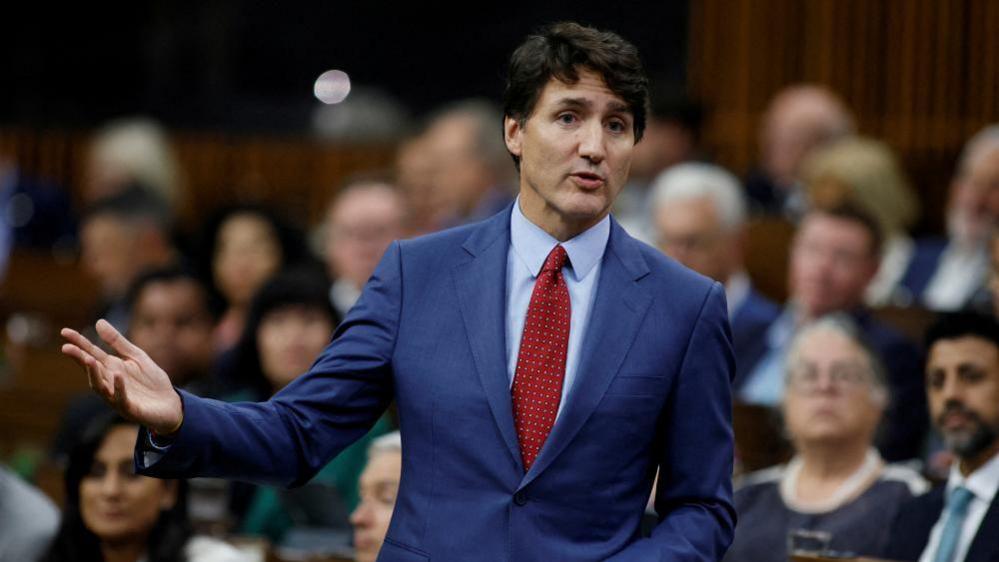Trudeau survives second parliamentary confidence vote

- Published
Canadian Prime Minister Justin Trudeau has survived a second non-confidence motion in parliament in as many weeks.
The motion, brought by the opposition Conservatives, was aimed at bringing down his minority Liberal government and triggering a federal election.
The motion failed after Conservative leader Pierre Poilievre again fell short in his effort to gain the backing of other political parties in parliament.
Poilievre tabled this second non-confidence motion the day after his last one failed.
This motion accused the government of failing Canadians on affordable housing, the cost of living, and crime - key issues that the Conservatives have been using to hammer the Liberals for months.
The vote needed the majority of the 338 members of parliament (MPs) in order for it to pass.
After all the votes were counted, 121 voted for the motion while 207 voted against it.
In a statement following the vote, Poilievre blamed the NDP and the Bloc Québécois for its failure, saying the former had "sold out working Canadians" while the latter is "letting down Quebecers".
The Bloc Québécois, which represents the interests of Quebec, Canada’s French-speaking province, had issued an ultimatum to the Liberals for its continued support.
The sovereigntist party gave the government a 29 October deadline to pass two bills, one increasing pensions for seniors and one to bolster protections on Canada's supply management system, which controls production quotas and imports on dairy and poultry products.
On Tuesday, it tabled its own motion calling on the Trudeau government to support their seniors' bill.
Meanwhile, the NDP leader Jagmeet Singh indicated last week that his party would not support the Conservative motion.
Several other non-confidence motions are expected to be tabled in the coming weeks, including a third that has been put forward by the Conservatives.
Trudeau has been Canada’s prime minister for nine years and has been facing growing pressure to resign over concerns he is a drag on his party's fortunes.
The Conservatives have been leading the Liberals by a wide margin in opinion surveys for months.
His Liberal party lost two consequential by-elections this summer in Toronto and Montreal, both in strongholds previously held by the party for years.
A deal between the Liberal party and the NDP had helped Trudeau stay in power since Canada’s last federal election in 2021.
The deal collapsed last month after Singh pulled out from the deal, saying that the Liberals are “too weak” to govern.
Related topics
- Published16 September 2024

- Published25 September 2024
